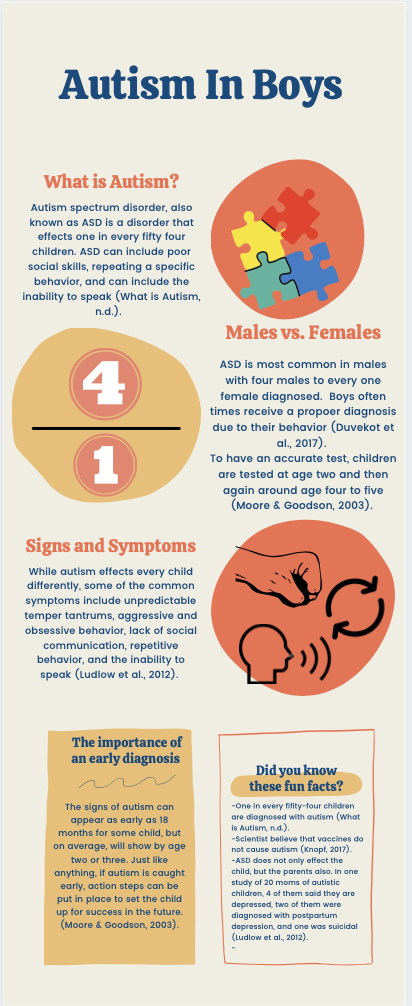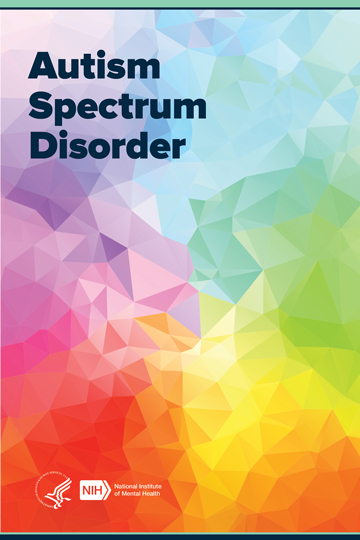Managing transitions using Autism Behavioral Therapy
Managing transitions using Autism Behavioral Therapy
Blog Article
Key Indications and Signs to Identify in Individuals With Behavioral Autism
When you come across somebody with behavioral autism, identifying key symptoms and signs is important. You may see challenges in social interactions and interaction, along with a strong need for routines. In addition, sensory level of sensitivities can lead to overwhelming experiences. Comprehending these traits can enhance your support and interventions, however there's even more to reveal about how these habits materialize in day-to-day scenarios. Let's explore what these signs really appear like.
Obstacles in Social Communications
When you communicate with someone on the autism spectrum, you might discover they have a hard time with social signs and communication. These challenges can make social communications really feel overwhelming for them. You might see them staying clear of eye contact or standing also close or also far during conversations, which can create misunderstandings. They could not notice body movement or facial expressions, making it harder for them to evaluate how others are feeling.
When they do involve, they might speak about their passions in fantastic information without discovering if you're interested. Recognizing these challenges can help you come close to communications with empathy and persistence, fostering an extra comfortable setting for both of you.
Problem With Verbal and Non-Verbal Interaction

Non-verbal interaction can be much more tough. You could see an absence of eye call or restricted use gestures, which can make interactions feel awkward. Faces might not constantly line up with the conversation, causing confusion about their sensations. Recognizing these signs is essential, as it helps you far better assistance and engage with individuals on the autism range. By recognizing their communication challenges, you can cultivate extra significant connections and provide an extra encouraging atmosphere.
Repetitive Habits and Regimens
Interaction difficulties frequently come with various other signs of autism, such as repetitive behaviors and a strong choice for regimens. You might observe that people with autism frequently take part in details, repeated activities, like hand-flapping, shaking, or duplicating expressions. These habits can supply comfort and a feeling of control in a commonly overwhelming world.
When they follow an organized routine,Regimens are equally crucial; several people grow. You may locate that adjustments to these regimens can bring about significant distress. For instance, if they have a daily routine of eating breakfast at a specific time or complying with a certain path to college, any type of interruption can cause anxiousness.
Recognizing these patterns helps you recognize their actions and provide support. By accommodating their demand for regular and permitting recurring actions, you can produce an extra comfy setting that eases their challenges.
Sensory Sensitivities

Usual Sensory Triggers
Sensory level of sensitivities can significantly affect every day life for individuals with autism, as certain stimulations often activate overwhelming reactions. Usual sensory triggers consist of loud noises, intense lights, and strong scents. You may discover that sudden noises, like alarm systems or alarms, cause anxiety or distress. Fluorescent illumination in stores can really feel unpleasant and extreme. Structures can likewise play a considerable duty; rough textiles or certain food structures might be unbearable for you. Furthermore, crowded places can overwhelm your senses, making it tough to concentrate or relax. Recognizing these triggers can help you manage your atmosphere much better. By being Autism Spectrum Therapies aware of what affects you, you can take steps to decrease pain and improve your everyday experiences.
Behavioral Responses Discussed
Understanding your behavior actions to sensory sensitivities is important, as they often expose exactly how you engage with the world. You may also discover yourself seeking particular sensory experiences, like deep pressure or silent environments, to assist ground on your own. Recognizing these patterns assists you understand your needs better and can guide just how you communicate them to others.
Coping Techniques Review
Recognizing your sensory sensitivities is just the initial step; currently it's time to explore coping strategies that can aid you handle those experiences effectively. Start by developing a sensory toolkit tailored to your needs. This could include noise-canceling headphones, fidget toys, or calming fragrances. Developing an organized routine can additionally offer predictability, lowering anxiety around sensory overload. Take breaks in a quiet space to regroup when you really feel overloaded. Practicing mindfulness strategies like deep breathing can help ground you in the minute. In addition, connect your demands with those around you; having supportive pals and family members can make a huge difference. Keep in mind, locating what works ideal for you may take time, so be patient and open to attempting brand-new approaches.
Limited Passions and Emphasis
While several people develop a variety of interests, those with autism frequently demonstrate restricted passions and an extreme concentrate on particular topics. You could see that someone with autism can invest hours diving into their favorite subject, whether it's a specific type of train, a specific motion picture, or a scientific idea. This intense focus isn't just a hobby; it can come to be a main component of their identity and social communications.
You might discover that discussions focus on these passions, and they may battle to involve in broader subjects. For them, these focused rate of interests supply convenience and a sense of proficiency. While it is necessary to motivate exploration of brand-new subjects, respecting their passions is just as essential. By understanding and recognizing these restricted rate of interests, you can cultivate a helpful environment where they feel valued and recognized, permitting even more meaningful connections and communications.
Psychological Guideline Difficulties
People with autism often face obstacles in psychological guideline, which can be affected by their extreme focus on specific interests. You could notice that when a person is deeply engaged in a favored activity, they can experience strong feelings, whether excitement or frustration. This intensity often makes it tough for them to move gears or manage their feelings when points do not go as intended.

Irregularity in Developmental Landmarks
When it comes to developing landmarks, you'll see that individuals with autism frequently reveal a wide range of irregularity. You may see a kid succeed in language skills yet battle with social interactions.
It's necessary to identify that each person's trip is special. Some might develop complex skills early, only to encounter challenges later. Others might take longer to attain basic landmarks yet after that thrive in specific areas. Observing these patterns can help you recognize their strengths and needs much better.
Often Asked Concerns
Exactly How Is Autism Detected in Kid and Adults?
To identify autism in grownups and children, professionals evaluate habits, communication skills, and social communications. If a specific satisfies the standards for autism range disorder., they commonly make use of standard examinations, meetings, and observations to figure out.
Are There Various Sorts Of Autism Range Disorders?
Yes, there are various sorts of autism range disorders, including Asperger's syndrome and pervasive developmental disorder-not or else specified. Each kind differs in seriousness and attributes, so here comprehending these distinctions can aid you far better support people with autism.
What Therapies Are Efficient for Individuals With Autism?
When thinking about efficient treatments for people with autism, you'll discover choices like Applied Behavior Analysis, speech therapy, and occupational treatment. Each strategy can help improve interaction, social skills, and everyday operating tailored to specific requirements.
Can People With Autism Lead Independent Lives?
Yes, people with autism can lead read more independent lives. With the appropriate support, abilities training, and sources, you can aid them create self-sufficiency, handle everyday tasks, and grow in various settings, cultivating their independence.
Just How Can Families Assistance Liked Ones With Autism?
You can sustain your loved ones with autism by developing an organized setting, encouraging their rate of interests, exercising persistence, fostering communication, and promoting social abilities. Commemorate their accomplishments, no issue how little, and develop a helpful area.
Although lots of individuals on the autism spectrum can recognize and use language, they usually deal with considerable difficulties with both non-verbal and verbal interaction. Acknowledging these indications is important, as it aids you much better assistance and involve with individuals on the autism range. You might discover that individuals with autism typically engage in certain, repeated activities, like hand-flapping, shaking, or duplicating expressions.Sensory level of sensitivities can considerably affect daily life for people with autism, as particular stimulations typically trigger overwhelming reactions.When it comes to developing turning points, you'll see that people with autism often reveal a vast array of variability.
Report this page